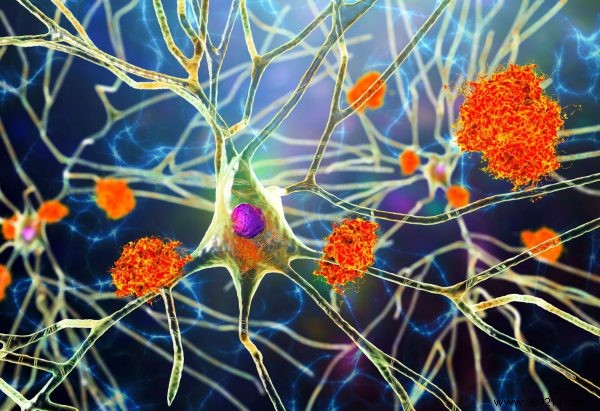
Scientists from Maastricht University, led by Heidi Jacobs, have identified a minuscule area in the brainstem that may indicate an increased risk of developing Alzheimer's disease. An important breakthrough, as it turns out.
Using different techniques, the researchers found that less activity in the brainstem area was linked to a faster decline in memory and thinking in older adults. The changes in the area can occur up to 30 years before the first symptoms appear.
The area the scientists studied is called locus coerulus, or blue core. The small area was imaged using special MRI equipment. It's the first time that's happened.
Alzheimer's is still often diagnosed by analyzing people's memory tasks. This research is an important breakthrough into the underlying disease process.
The area in the brain is the first place where so-called tau proteins that are linked to Alzheimer's accumulate. Jacobs has been able to establish a link between the accumulation of these harmful tau proteins and the impairment of memory. The accumulation of the proteins has been happening for about ten or twenty years before the first memory problems.
Source:Health Day, Image:Getty Images
Research into Alzheimer's
The benefits of reading more often
Facts and fables about olive oil